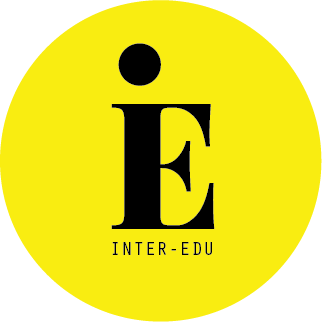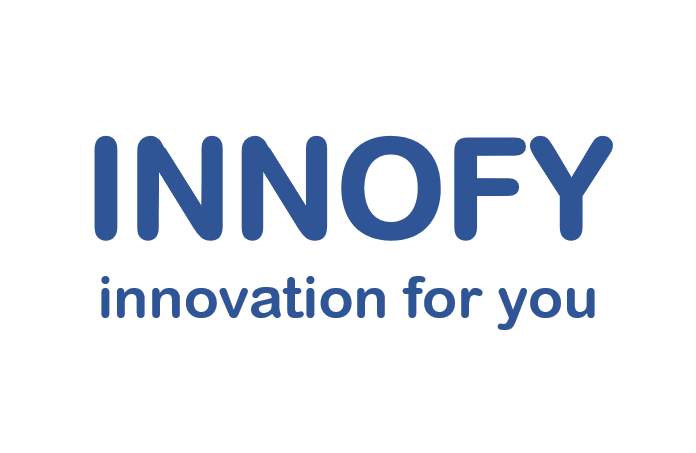University of Cyprus
Coordinator

The University of Cyprus participates in CHILD Project through the Software Engineering and Internet Technologies (SEIT) Laboratory, an integral part of the Department of Computer Science. SEIT focuses its research activities on two important areas of Information Technology, namely Software Engineering and Internet Technologies. In the second area, the Laboratory concentrates on the development of ICT-enabled Creativity and Enhanced Learning Environments, platforms and tools for implementing Health monitoring and support services, Smart and Personalised services for Elders and Assistive Technologies for people with disabilities. SEIT has extensive experience in the area of applying ICT (Information and Communication Technologies) to e-Learning, m-Learning and Open and Distance Learning in general as well as Life Long Learning in particular. This expertise is both at a technical level and at developing policies and qualification frameworks for such activities. Regarding only the Erasmus+ related themes, SEIT has recently coordinated four Erasmus+ projects (VeLoCiTy, World-of-Physics, DiFens, IDEA) and currently coordinates one Erasmus+ project: wINGS (begun in 2018), and also participates in 14 more: EASIER, EPUM, ELSE, AT-SGIRES, SENSE, WINDEXT, Dig-It, ISSA, ICT-4TVET, TOOLS, PRIMAE, QHELP, Digi-Sporting and Job-Jo. SEIT has also participated in 13 Leonardo da Vinci projects, 3 EUMEDIS projects, 2 FP (Framework Programs), 1 INCO-DC and 3 projects funded by national funds. It has also participated in the EMUNI project and the VUSCC initiative, both related to policymaking or reform and qualifications accreditation, as well as in the Interreg IVC project Innofun, on developing policies for entrepreneurship and innovation. SEIT is currently participating in two AAL projects: eSticky, and GUIDed, and in one national project: ReaDI-STANCE.
Association for Internationalization of Education and Science
Partner

Inter-Edu is a non-profit association acting in the field of science and education. It was established with a mission to strengthen the education and science through internationalization, networking, share of best practices, and modernization.
Based on educational and scientific commitment Inter-Edu’s activities focus on but are not limited to : participation at scientific projects and research, preparation of project applications, services related to pre-award and post-award stage of project implementation, boosting internationalization in science and education, promoting networking and share of best practices, organization, administration and participation at scientific events (seminars, conferences, training schools). Inter-Edu works on project applications preparation and implementation as either the author (in which case fully holds the authorship rights) or as a partner institution.
Our mission is strengthening education and science through internationalization, networking, share of best practices, and modernization. Our vision is knowledge based economy and society.
Based on educational and scientific commitment our activities focus on but are not limited to:
• participation in national and international science and research projects;
• identifying and taking advantage of global education trends and issues;
• strengthening ties between knowledge and society;
• boosting internationalization in science and education
• promoting networking and share of best practices;
• organization, administration and participation in national and international scientific events (conferences, seminars, training schools).
The scope of activities of Inter-Edu include a Publishing section and Project section. The four publications by Inter-Edu are: 1) AgriLingua Practicum, 2) Inter-Edu Recipe’s Notebook, 3) Problem-Based Teaching in EFL, 4) Baseline Study in Agriculture.
Inter-Edu takes fully participates in the following projects:
“Integrating Digital Innovations in Bee-keeping” (BEE-IN) – Erasmus+ 2021-1-EL01-KA220-VET-000025585
“Strenghtening Key Competences in Agriculture for Value Chain Knowledge” (SKILLS) – Erasmus+ 2021-1-EL01-KA220-HED-000023289
“Challenging of Pre-schools for Innovative and Creative Environment” (CHILD) – Erasmus+ K220 Action 2021-1-CY01-KA220-SCH-000023910
“Governance of Sustainability” (GOS)-Rural Development Program 2014-2020-Measure 19.3
“Fostering Agriculture Rural Development and Land Management” (FARM) – Erasmus+ K202 Action KA-203-5F979733
“Boosting Research Administration Skills and Services” (ADMIN)- Erasmus+ K203 Action 2020-1-PL01-KA203-081530
“V4+WB Network of RMAs” – Visegrad Fund Project ID:22020021
“Boosting Adult Education in organic Farming” Bio-Farm 2018-1-TR01-KA204-058563 Erasmus+ programme
“Voice of Research Administrators” BESTPRAC #1302- COST programme
“Women-Cars-Culture: Women Empowerment Boosting Twinning Towns and Networking”- USA
“Boosting Adult System Education in Agriculture” 2015-1-МК01-КА204-002857 Erasmus+ programme (2015-2017)
“Erasmus+ K1 Action 256492-EPP-1-2014-1-MK-EPPKA3-ECHE (2011-2015)
Vilniaus gedimino technikos universitetas
Partner
VILNIUS GEDIMINAS TECHNICAL UNIVERSITY (VILNIUS TECH) is a leading higher education institution situated in Vilnius, the capital of Lithuania. Established in 1956, VILNIUS TECH is one of the biggest research universities in Lithuania, focusing on technologies, engineering and prioritising university-business cooperation.
VILNIUS TECH mission is to: develop a publicly responsible, creative, competitive individual who is receptive to science, the latest technologies and cultural values; to promote scientific progress, social and economic well-being; and to create value that ensures the development of both Lithuania and the region in a global context.
Our vision is to be recognised in Lithuania and beyond as a prestigious technical institute of higher education, with superior programmes in scientific enquiry and study that rank among Europe’s best. By making ourselves attractive to Lithuanian and foreign scientists and students we will continue to respond to environmental challenges and contribute to the social, scientific and economic progress of our nation.
VILNIUS TECH objectives are to:
- prepare qualified, creative and socially active professionals, who can work successfully in both the scientific community and labour markets of Lithuania and elsewhere
- conduct international-level research concentrating scientific activities in departments with the highest level of competence
- implement VILNIUS TECH policy of recruiting established scientists
- develop research-based innovations that benefit society and business
- take its place as one of the university leaders in the Baltic region in the fields of sustainable construction, transport, sustainable environment, information technologies and communication
- promote the sustainable development of the country and region
- develop the innovative society.
Panepistimio Dytikis Makedonias
Partner

The University of Western Macedonia – UOWM emerged from the merging of two Higher Education Institutions in 2019 (both operated for over 20 years), expanding its educational remit. It consists in 7 faculties and 22 departments, offering over 20 postgraduate programs and 3 in collaboration with other universities.
The development of structures for the exploitation of research products, the diffusion of culture of new technologies and innovation, the creation of centres of certification of local products, the promotion of the region’s assets, the diffusion of ecological conscience, the elevation and the respect of the cultural wealth, reflect the activity of the UOWM.
One of the main objectives of UOWM and specifically the CrInTE Lab (which is led by the Early Childhood Education Department but includes members also from the Computer Science Department), is the creation of new knowledge through the promotion of scientific research. The research activity is supported by the human resources (postgraduate and undergraduate students, scholars, researchers, etc.) and by the appropriate infrastructure, constitutes the most important factor for the improvement of both the Teaching and Education level. Fostering fully incorporation of ICT in everyday practice, the UOWM invests in innovative educational programs and multidisciplinary fields of research that correspond to the needs of the modern world. Till now, UOWM has managed more than 200 projects (both, National and European), thus being able to fully contribute to this project.
As a laboratory, UOWM has a strong focus on educators’ training and educational policy – strategies deployment, by participating in National and European research programs. Being an educators’ training facility, it supports and promotes innovative teaching approaches, such as eLearning.
UOWM is directly linked to education, through undergraduate and postgraduate courses and it holds a tight relationship with schools and teaching staff, thus it is able of identifying training and learning needs. There is a close collaboration with educators in situ, on a permanent basis, in matters of research and everyday teaching practices, by designing and implementing experimental and official teaching programs and approaches, while training future educators in the process. Furthermore it can validate the scientific accuracy of the training material produced for teachers and students and train a large number of future teachers.
The UOWM team consists of:
- Tharrenos Bratitsis (supervisor): Professor of Informatics, at the Dpt of Early Childhood Education of UOWM (ECE-UOWM), works on CSCL, digital storytelling, technology & art-based learning approaches, game-based learning and innovative teaching approaches
- Eleni Smpili: UOWM employee, ECE (2015) and Library Science-Information Systems degree (2002), MSc in Public Management (2018) with significant experience in HRM and Quality.
- Vasiliki Pliogou: Assistant Professor of Pedagogy and Applications in Education, at ECE-UOWM. Research interests: human rights education, childhood and children’s rights, citizenship, family-school connection, gender and educational implementations using different pedagogical tools in various formal and non-formal educational environments.
- Christina Sidiropoulou: member of Laboratory Teaching staff at ECE-UOWM. Her research interests focus in the teachers’ initial training and in collaborative and multimodal learning approach in Early Childhood Education.
Fraud Line Enterprise Risk Management and Compliance
Partner

CHILD consortium consists of 5 partners from 4 different EU countries. Please check the map for more information
